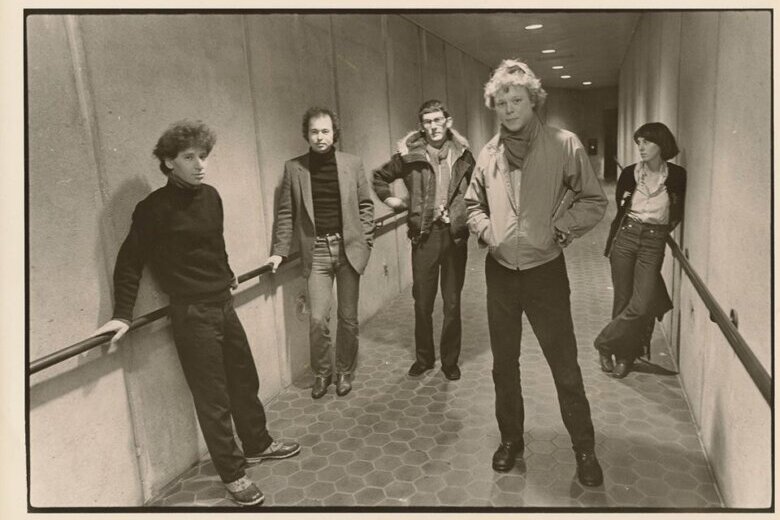
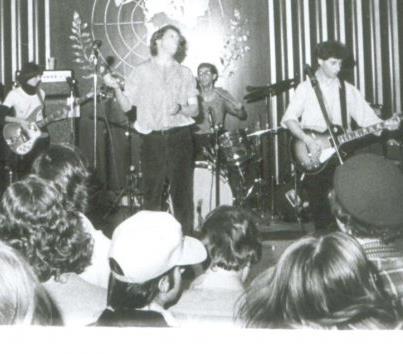
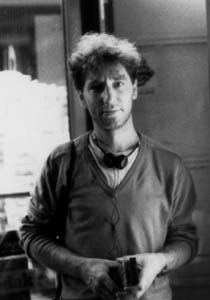
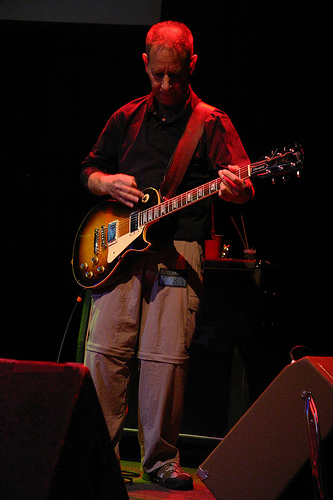
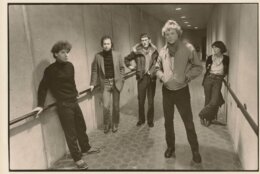
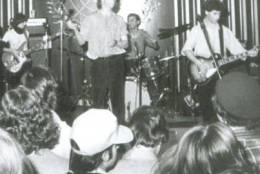
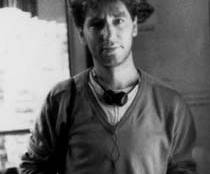
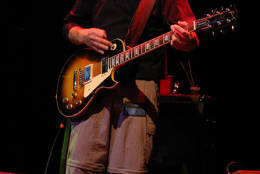
WASHINGTON – In the late 1970s, the most popular band in Washington D.C.’s young new wave music scene was The Urban Verbs.
Verbs’ guitarist, Robert Goldstein, whose orchestral, swirling style influenced musicians including U2’s The Edge, has died at the age of 66, after a long battle with cancer.
Rod Frantz, who co-founded the Urban Verbs with Goldstein, told WTOP the decades-long friendship and working relationship began outside The Keg nightclub, which used to sit in a strip shopping center on Wisconsin Avenue at W Street Northwest.
“Robert’s band The Look had just broken up, and my band The Controls had disbanded after playing one show at American University, so we both knew the other was looking for a new project,” Frantz said.
Two days later, Goldstein called Frantz, and they began writing songs.
“Robert played a very liquid style of guitar,” said Frantz. “He played the electric guitar like it was a folk guitar, but he added effects that gave it a power and a majesty.”
Goldstein, Frantz and the Urban Verbs were popular at a time before nightclubs catered to what began as punk music, and morphed into new wave.
The band rehearsed in the Atlantic Building, at 930 F St. Northwest, with Goldstein booking bands into what was known as The Atlantis Club, before becoming 9:30 Club.
“I used to talk about guitar effects pedals with Robert,” said Marshall Keith, guitarist for the popular Slickee Boys.
“He was refreshingly not ‘in your face,’ said Keith. “I admired his guitar playing — he created such a cool atmosphere that was the foundation for the Verbs sound.”
Short in stature, Goldstein’s sound was enormous, said Keith.
“Everyone else in the D.C. scene was, ‘hey, look at me,’” said Keith. “Robert was the opposite.”
After recording a demo with Brian Eno, the Verbs secured a two-record deal with Warner Brothers, releasing their first record in 1980.
“Robert’s sound was orchestral — there were very few traditional lead guitar breaks,” said Frantz. “His music transported people in nightclubs and albums.”
Producer Steve Lillywhite and Jeff Glixman did the band’s second album in Atlanta.
“Steve took our rough mix tapes to Nassau in the Bahamas, where a band called U2 was about to record their new album,” recalled Frantz. “You can trace a marked change in The Edge’s guitar sound from that record forward.”
“I’ll never forget their show at the Corcoran Gallery, opening for the B52s,” Keith said. “Before there was The Edge and U2, we had Robert Goldstein.”
Frantz, whose brother is Chris Frantz of Talking Heads, said Goldstein “has been highly under-recognized as an influential musician.”
“He was a tremendous innovative guitarist, and because his lead singer had a famous brother, he was unfortunately overlooked by the popular press,” said Frantz.
After the release of the band’s second album, which received little critical acclaim, the Urban Verbs continued touring until 1981.
Goldstein was an accomplished musician, recording film scores for films, theater, and television.
He was NPR’s Music Librarian for 20 years, becoming a manager in NPR’s research and archives division, according to colleagues Bob Boilen and Tom Cole.
A bandmate in Goldstein’s The Look, Xyra Harper called him “an indisputable and irreplaceable force in the D.C. music scene.”
Harper said Goldstein’s health issues resulted in a kidney transplant.
“He remained a creative presence in the lives of all who knew him and it made him a good friend and ally,” said Harper.
Frantz said Goldstein was private about his illness, and the two rarely discussed the specifics.
The Urban Verbs played a few reunion shows over the years — the last one in May 2016, at the Katzen Arts Center at American University.
By that time, Frantz said the band knew Goldstein was sick and getting sicker.
“We also did it as a tribute to Robert, knowing that it would be the last time the five of us had the opportunity to play together as the original members of the Urban Verbs,” said Frantz.
Frantz, who lives in Connecticut, visited his friend last week.
“The last thing he said to me as I was leaving Sibley the other day was, ‘Rod, I think the jig is up.’ He was announcing to me that he didn’t expect to live much longer,” said Frantz.
Frantz said he’s been reflecting on his career and friendship with Goldstein.
“The relationship two men have, based on the songs they create together, over a period of almost 40 years, is a very singular relationship,” said Frantz. “We had a closeness that was different from friendships with other people.








